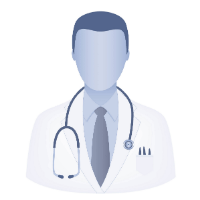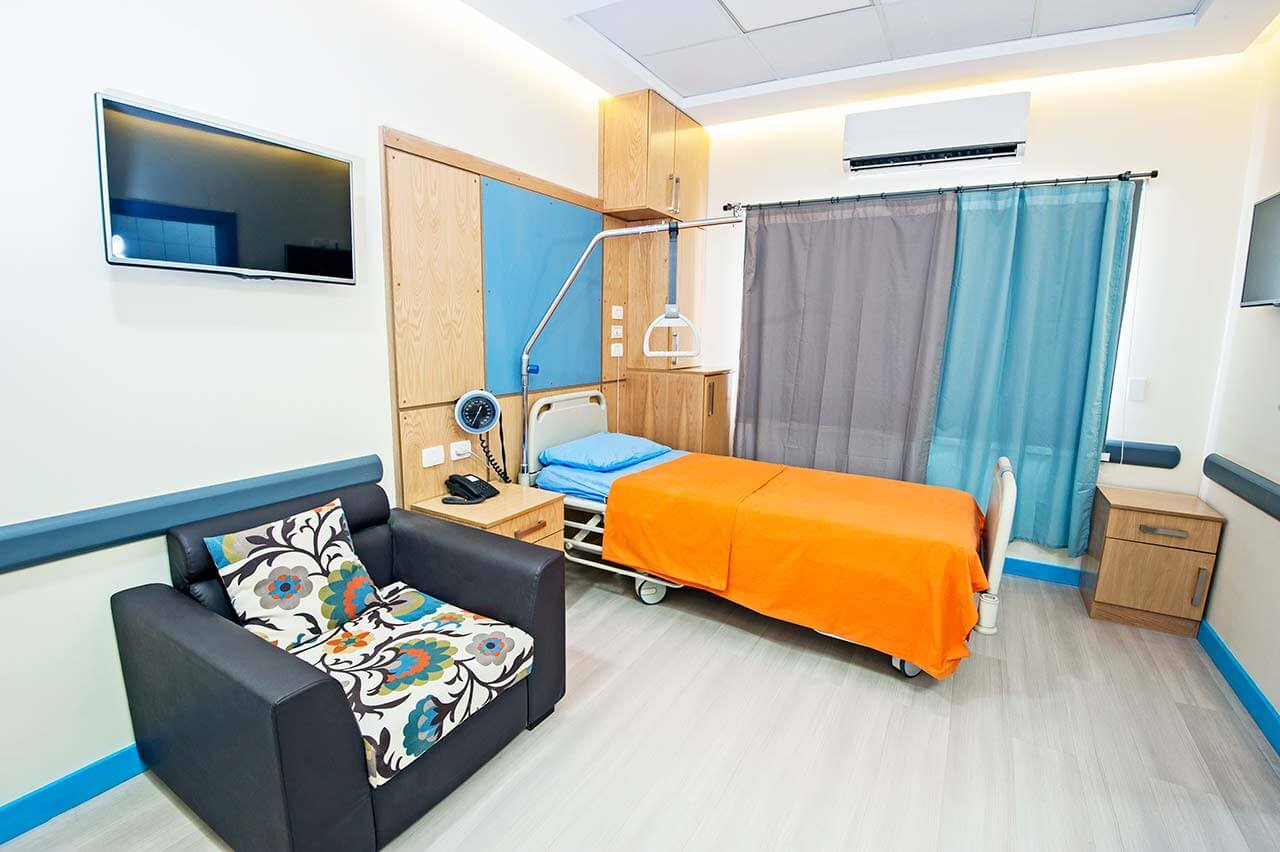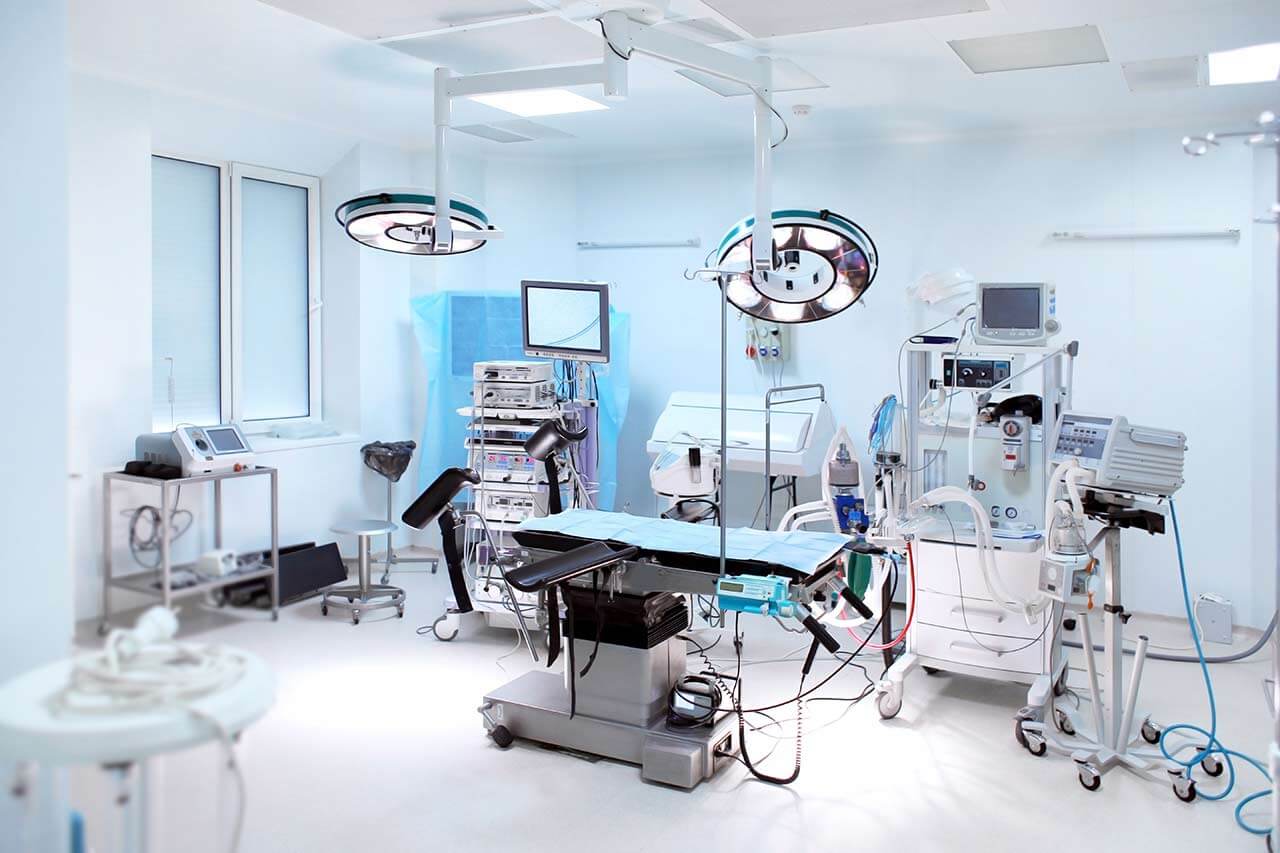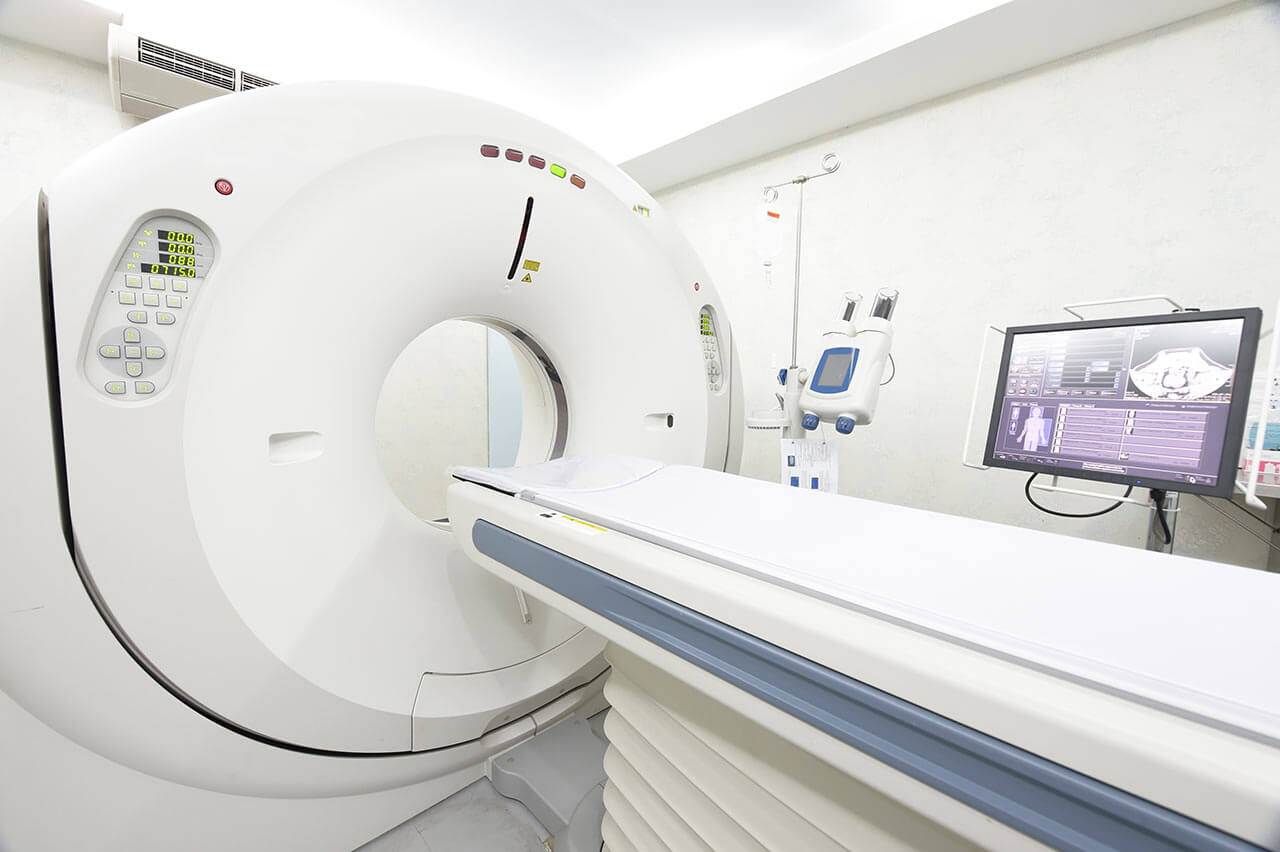
The program includes:
- Initial presentation in the clinic
- clinical history taking
- review of medical records
- physical examination
- laboratory tests:
- complete blood count
- general urine analysis
- daily urine analysis
- biochemical blood test
- inflammation markers (CRP, ESR)
- blood coagulation analysis (aPTT, PT, INR)
- kidney ultrasound
- nursing services
- consultation of related specialists
- treatment by chief physician and all leading experts
- explanation of individual treatment plan
Required documents
- Medical records
- Kidney US (if available)
- MRI/CT scan (if available)
Service
You may also book:
 BookingHealth Price from:
BookingHealth Price from:
About the department
The Department of Nephrology at the University Hospital Carl Gustav Carus Dresden offers the full range of diagnostic and therapeutic services for patients with kidney diseases, including especially severe ones. Of particular interest is the treatment of inflammatory (glomerulonephritis) and vascular (vasculitis) kidney diseases, as well as arterial hypertension. The department's specialists carry out all types of modern renal replacement therapy (dialysis). In addition, the department specializes in caring for patients with advanced kidney disease before and after kidney transplantation. The department provides medical care both on an inpatient or outpatient basis. In their work, doctors are guided only by up-to-date clinical protocols and follow the recommendations of professional societies, thanks to which they achieve high treatment success rates and restore the patients' health. The department is headed by Prof. Dr. med. Christian Hugo.
The department's doctors pay special attention to comprehensive counseling of patients, in particular, if a kidney transplant surgery is required. Renal replacement therapy is carried out within the specialized KfH Center that was founded in the department in 1969 and has a long tradition and tremendous experience in its area of specialization. The department offers excellent conditions for performing all modern types of dialysis at the highest level of university medicine. The department successfully performs hemodialysis, hemodiafiltration, hemofiltration, peritoneal dialysis and other types of renal replacement therapy.
The department's medical team is rightfully proud of its outstanding results in the treatment of glomerulonephritis. The pathology is characterized by autoimmune inflammation of kidney glomeruli, which impairs the kidneys' ability to filter blood. Glomerulonephritis can be acute and chronic, which determines the further treatment tactics. To make a diagnosis, the patient needs a comprehensive examination, including a general and biochemical blood test, a coagulogram, a clinical urine test, an enzyme-linked immunosorbent assay and kidney ultrasound scanning. In some cases, a kidney biopsy may also be required. Other diagnostic examinations are performed only as prescribed by the attending physician. Glomerulonephritis is usually treated on an inpatient basis. The patient is advised to rest in bed and restrict physical activities. The therapeutic process is based on the intake of medications prescribed with due consideration of a particular clinical case. The therapeutic protocol includes the intake of antibiotics, antiviral drugs, immunosuppressive drugs, medicines to eliminate edema and normalize blood pressure, and anticoagulants. Following a special diet and drinking regimen plays an important role in the treatment success. After the completion of the main course of treatment, regular examinations are required to monitor the patient's condition.
The department's main clinical focuses include:
- Diagnostics and treatment of polycystic kidney disease
- Diagnostics and treatment of glomerulonephritis
- Diagnostics and treatment of renal vasculitis
- Diagnostics and treatment of arterial hypertension
- Diagnostics and treatment of kidney failure
- Diagnostics and treatment of kidney stone disease
- Diagnostics and treatment of hematuria
- Diagnostics and treatment of pyelonephritis
- Diagnostics and treatment of interstitial nephritis
- Diagnostics and treatment of other kidney diseases
The department's therapeutic options include:
- Drug therapy for kidney diseases
- Renal replacement therapy (dialysis)
- Hemodialysis
- Hemodiafiltration
- Hemofiltration
- Home hemodialysis (including training of patients)
- Peritoneal dialysis
- Continuous outpatient peritoneal dialysis
- Continuous cycling peritoneal dialysis
- Intermittent peritoneal dialysis
- Peritoneal dialysis training at home
- Dialysis for patients with infectious diseases (for example, HIV, hepatitis C, etc.)
- Preparation and follow-up care after kidney transplant surgery
- Other medical services
Curriculum vitae
In 1982, Dr. med. Christian Hugo began studying physics. In 1983, he changed to the Faculty of Medicine at the Julius Maximilian University of Wuerzburg, where he studied Human Medicine until 1989. From 1989 to 1991, the doctor worked at the University Hospital Wuerzburg. This was followed by admission to medical practice (February 19, 1991) and his doctoral thesis defense on the subject: "The effect of aldosterone on the concentration of atrial natriuretic factor in certain areas of the brain: an experimental study on intact and adrenalectomized rats".
From 1991 to 1993, Prof. Christian Hugo worked in the Department of Nephrology at the University Hospital Erlangen-Nuremberg, and from 1993 to 1995, he had a scholarship program of the German Research Foundation. From 1995 to 1996, the doctor was engaged in research activities (Postdoctoral Fellow) in the Department of Pathology and Nephrology of the National Kidney Foundation of the University of Washington. In 1999, he defended his doctoral thesis on the subject: "The value of thrombospondin-1 in the pathogenesis of inflammatory kidney disease", Friedrich-Alexander University Erlangen-Nuremberg.
From 1996 to 2011, Dr. Hugo worked in the Department of Nephrology at the University Hospital Erlangen-Nuremberg. In 1998, he had his board certification in Internal Medicine and in 2001 in Nephrology. From 2001 to 2009, he worked as the Head of the Department of Nephrology and was also appointed to the position of Head of the Kidney Transplantation Program at the University Hospital Erlangen-Nuremberg. In April 2007, he was appointed as Visiting Professor for Nephrology and Hypertension. In 2009, Christian Hugo became W2 Professor for Nephrology in the Department of Nephrology at the University Hospital Carl Gustav Carus Dresden. Since 2014, the doctor has also been the Secretary General of the German Organ Transplantation Foundation.
Memberships in Professional Societies
- Since 1991 German Society of Internal Medicine.
- Since 1996 German Society of Nephrology.
- Since 2003 European Renal Association.
- Since 2004 Co-Editor of "Nephron Experimental Nephrology".
- Since 2008 German Organ Transplantation Foundation.
Awards
- 1991 Scientific Prize of the Franconian Research Foundation.
- 1996 Poster Award of the National Kidney Foundation.
- 1997 Poster Award of the German Society of Nephrology.
- 1998 Poster Award of the German Society of Internal Medicine.
- 2006 Poster Award of the German Society of Nephrology.
Photo: (с) depositphotos
About hospital
According to the reputable Focus magazine, the University Hospital Carl Gustav Carus Dresden ranks among the top five German hospitals!
The hospital is the benchmark for modern high-quality medicine. Positioning itself as a maximum care medical facility, the hospital represents all medical fields. There are 26 specialized departments, 6 institutes and 17 interdisciplinary centers, which cooperate closely with the clinical and scientific facilities of the Faculty of Medicine. The basis of successful practice is excellent equipment, which is regularly updated, as well as highly qualified, experienced medical personnel: world famous doctors and professors work here for the benefit of patients.
In addition to its main goal of caring for patients, the hospital is also active in training and professional development of medical personnel, as well as in the field of public health care. The priority focus of the work is research activity, which allows the doctors to introduce the innovative diagnostic and therapeutic techniques into clinical practice.
A special feature of the hospital is also the diagnostics and treatment of rare diseases. State-of-the-art equipment and well-coordinated work of doctors of various medical specialties make it possible to timely recognize pathologies rarely encountered in medical practice and select the most effective therapy. Specialization in rare diseases include neurology, endocrinology, hematology/oncology, and rare autoimmune diseases.
The hospital has 1,410 beds for patient hospitalization. About 55,900 inpatients and more than 233,975 outpatients undergo treatment here annually. A large medical team, consisting of about 1,000 highly qualified doctors, as well as over 2,000 nursing staff take care of the patients' health. Each patient is guaranteed an individual approach and the most effective treatment in accordance with current clinical protocols.
It should be noted that the university hospital enjoys an impeccable reputation not only in Germany, but also far beyond its borders, including Arab countries, post-Soviet states, Great Britain and the United States. Patients from different parts of the world come here for high-quality treatment for diseases of any severity. The highest credit of patient confidence is the main indicator of the fruitful work of doctors.
Photo: (с) depositphotos
Accommodation in hospital
Patients rooms
The patients of the University Hospital Carl Gustav Carus Dresden live in comfortable rooms made in bright colors and equipped with everything necessary. The standard patient room includes an automatically adjustable bed, a bedside table with a sliding table, a wardrobe, a telephone and a TV. There is also Wi-Fi (free) in the patient rooms.
If desired, patients may live in enhanced comfort patient rooms. These patient rooms have a more sophisticated design, upholstered furniture and a safe for storing valuables.
Meals and Menus
The patients of the hospital are offered a tasty, healthy and varied three meals a day. The menu is based on local cuisine and seasonal food. If you for some reason do not eat certain products, please inform the medical staff of the hospital in advance, and you will be offered an individual menu. The nutrition provided in the hospital is certified in accordance with the quality standards of the German Nutrition Society (DGE) for catering in German hospitals.
Further details
Standard rooms include:
Religion
The religious services are available upon request.
Accompanying person
Your accompanying person may stay with you in your patient room or at the hotel of your choice during the inpatient program.
Hotel
You may stay at the hotel of your choice during the outpatient program. Our managers will support you for selecting the best option.
The hospital offers a full range of laboratory diagnostic procedures (general, hormonal, tests for tumor markers, infections, antibodies, etc.), genetic tests, various modifications of ultrasound scans, CT scans, MRI and PET / CT, angiography, myelography, biopsy and other examinations. Treatment with medications, endoscopic and robotic operations, stereotaxic interventions is carried out here, modern types of radiation therapy are also used. The hospital offers patients all the necessary therapeutic techniques.
- Cochlear implantation
- Deep brain stimulation
- Treatment of benign prostatic hyperplasia with green laser
- Da Vinci prostatectomy
- Bone marrow transplantation
These are head and neck tumors, hearloss, amyotrophic lateral sclerosis, epilepsy, Parkinson disease, infertility, malignant tumors of the reproductive system, congenital anomalies of the genital organs and the urinary system, urinary incontinence, blood clotting disorders, leukemia and other pathologies.
- Otolaryngology (Center for Cochlear Implantation)
- Neurology and Epileptology
- Urology
- Oncology
- Gastroenterology and Hepatology
About 1,000 highly qualified doctors work at the hospital.





